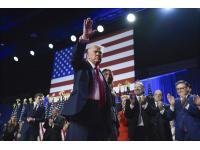Narendra Modi, the 14th Prime Minister of India, has been a central figure in the country's politics since assuming office in May 2014. Born on September 17, 1950, in Vadnagar, a small town in Gujarat, Modi's rise from a tea seller to the leader of the world's largest democracy is a story of determination, strategic acumen, and visionary leadership. As the leader of the Bharatiya Janata Party (BJP), Modi has implemented numerous policies aimed at transforming India’s economic landscape, strengthening its global standing, and fostering social development.

Modi's political career began in earnest with his association with the Rashtriya Swayamsevak Sangh (RSS), a Hindu nationalist organization. His organizational skills and dedication quickly caught the attention of BJP leaders, leading to his appointment as Chief Minister of Gujarat in 2001. During his tenure, Gujarat witnessed substantial economic growth, attributed to Modi's emphasis on infrastructure development, investment-friendly policies, and administrative reforms. His leadership in Gujarat laid the foundation for his national political career, culminating in his prime ministerial campaign in 2014, which promised economic revitalization and improved governance.
One of the hallmarks of Modi's tenure as Prime Minister has been his focus on economic reform and development. Initiatives such as "Make in India," aimed at boosting manufacturing, and "Digital India," designed to enhance the country's digital infrastructure, are pivotal components of his economic strategy. Additionally, the implementation of the Goods and Services Tax (GST) has streamlined India's complex tax system, promoting ease of doing business. Modi’s government has also prioritized infrastructure projects, including the construction of highways, railways, and urban development, to stimulate economic growth and create jobs.
Modi's foreign policy has significantly raised India's profile on the global stage. He has actively engaged with world leaders and international organizations to enhance India's strategic and economic partnerships. His emphasis on strengthening ties with neighboring countries, deepening relationships with major powers like the United States, and engaging with multilateral forums such as the United Nations and BRICS have underscored his commitment to positioning India as a key global player. Modi’s outreach to the Indian diaspora has also been a notable aspect of his foreign policy, fostering a sense of national pride and unity among Indians abroad.
Domestically, Modi has championed several social initiatives aimed at improving the lives of ordinary Indians. The "Swachh Bharat Abhiyan" (Clean India Campaign) seeks to improve sanitation and public health. The "Pradhan Mantri Jan Dhan Yojana" aims to increase financial inclusion by providing banking services to the unbanked. Other significant programs include the "Ayushman Bharat" health insurance scheme, which provides affordable healthcare to millions, and the "Ujjwala Yojana," which provides free cooking gas connections to women from low-income households. These initiatives reflect Modi's vision of inclusive development and his efforts to uplift marginalized sections of society.
However, Modi's tenure has not been without controversy. His policies, such as the demonetization of high-value currency notes in 2016, have sparked widespread debate about their effectiveness and impact on the economy. Additionally, his government's stance on issues such as religious freedom and freedom of expression has faced criticism from various quarters, both domestically and internationally. Despite these challenges, Modi remains a highly influential and popular leader, commanding significant support across diverse segments of the Indian population.

In summary, Narendra Modi's leadership as Prime Minister of India has been marked by ambitious economic reforms, proactive foreign policy, and significant social initiatives. His journey from humble beginnings to the pinnacle of Indian politics is a testament to his resolve and strategic vision. As Modi continues to steer India towards greater heights, his legacy will be shaped by the extent to which his policies succeed in fostering sustainable development, economic prosperity, and social harmony.








